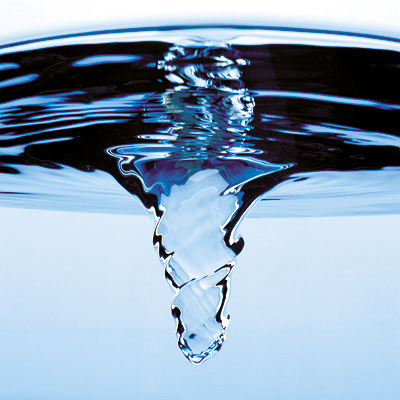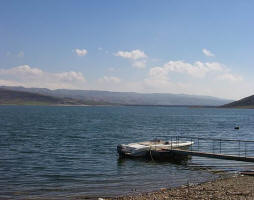 Jordan: Water contamination incidents highlight water shortage problem
Jordan: Water contamination incidents highlight water shortage problem
Thousands of Jordanians have been rushed to hospitals over the past few
months suffering from illnesses related to water contamination in villages
and towns across the kingdom. Experts fear the worst is yet to come unless a
lasting solution is found to the kingdom's water shortages.
Last July, nearly 1,000 people from a village near the northern city of
Mafraq were rushed to hospital suffering from severe diarrhoea and high
fever caused by a parasite, Cryptosporidium, which, specialists said, made
its way into the local water system. Investigations showed the source of the
disease was the worn out water network supplying the town. On 28 October,
another town, Sakib, near the Roman city of Jerash, saw at least 400 people
rushed to hospital complaining of the same symptoms. The government tried to
blame a small local restaurant for selling spoiled food, but residents
insisted the reason was contaminated water.
Jordan is one of the most water-impoverished countries in the world. An
average Jordanian consumes 170 cu. m. a day compared to 1,000 cu. m. used by
citizens in water-rich countries. With 92 percent of the land being desert,
Jordan relies on rain and underground water to supply its 5.6 million
people. In addition to the worn out water network, over-exploitation of some
2,000 wells, half of which were illegally constructed, is exacerbating the
problem. Figures from the Ministry of Water and Irrigation show that at
least 45 percent of the water in the supply network is lost due to
leaks.
The government is implementing a strict water rationing programme, pumping
water to households only once or twice a week. Water experts say a
combination of the degenerated water supply network and irregular water
pumping are the main reasons for water-borne illnesses. The government has
an ambitious project to pump water from Disi Aquifer in the south to Amman.
This project will see water pumped 300km from beneath the mountains of Wadi
Rum to the capital, where it will be sold to citizens at "an affordable
price”. But this project is still in its early stages. Studies show it will
take at least five years to complete. Former Minister for Water Hazzem
Nasser said the project was not practical and that the costs would be too
high.
Another project involves linking the Dead Sea with the Red Sea by a 250-km
long canal, and constructing a desalination station. Officials from the
Ministry of Water say such a project is the only viable solution to end this
conundrum. A feasibility study is being conducted by an international
consortium funded by the World Bank to determine the US$5 billion project's
feasibility and its impact on the environment.
| Contact information | n/a |
|---|---|
| News type | Inbrief |
| File link |
http://www.irinnews.org/Report.aspx?ReportId=75374 |
| Source of information | © IRIN. All rights reserved. |
| Keyword(s) | water shortage, water contamination |
| Subject(s) | HEALTH - HYGIENE - PATHOGENIC MICROORGANISM , POLICY-WATER POLICY AND WATER MANAGEMENT , PREVENTION AND NUISANCES POLLUTION , WATER QUALITY |
| Relation | http://www.semide.org/countries/fol749974/country045975 |
| Geographical coverage | Jordan |
| News date | 19/11/2007 |
| Working language(s) | ENGLISH |
 you are not logged in
you are not logged in





